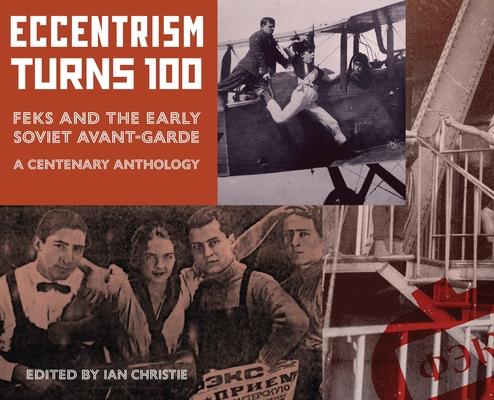Five years after the Russian Revolution, a couple of youngsters from Ukraine drove around the frozen streets of Petersburg, hurling copies of their manifesto Eccentrism into the streets. The former imperial capital was still called Petrograd, renamed in 1914 to sound less German at the start of the Great War, but these young firebrands proclaimed it 'Eccentropolis', the capital of their bid to topple 'art with a capital A', and replace it with art that would be 'hyperbolically crude, startling, nerve-wracking, functional, of the moment'. Otherwise, they claimed, 'no-one will hear, see or stop'. They called themselves the 'Factory of the Eccentric Actor' or FEKS, drawing on the circus, pulp novels, jazz, music-hall, cinema, for its inspiration. And above all, fired by the dynamic of American popular culture, mixed with Futurism and Dada.
This new book contains the first full translation of their manifesto, with many illustrations, stills from their early lost film The Adventures of Oktyabrina (1924), reminiscences by the filmmakers, and appreciations by their contemporaries. A window into the little-known, vibrant culture of the early Soviet era - when FEKS proclaimed it was 'better to be a young pup than an old bird of paradise'.
